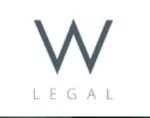What is an NFT?
An NFT is a ‘unique, digital certificate, registered in a blockchain, used to record ownership of an asset.' They allow an individual to own any collectible item, for example physical or digital artwork and even music.
Despite the frequent comparisons to other crypto assets and crypto currencies, NFTs have various qualities that distinguish them from such tokens. For example, NFTs cannot be traded for another identical token. This is due to the unique meta data code that requires the distributable ledger technology (‘DLT') to authenticate it. In addition, they are indivisible and once they have become digitally ‘minted' and part of the blockchain ledger, they cannot be edited or deleted. This is a key difference from the other fungible tokens that are interchangeable and indistinguishable from one another.
The use of the term has increased dramatically in the past year and is fast becoming a topic of discussion in many spheres.
Expanding use of NFTs: in the worlds of art and entertainment
Although NFTs allow an individual to own any collectible item, the most common use for them at present is in the art and entertainment industries. Within these industries, NFTs are used to authenticate digital art, collectibles, video content and physical assets.
The NFT authentication process allows additional profits to be made by linking a digital version of an asset to the physical asset itself with a stamp of authentic ownership. The profits to be made as a result are substantial as can be seen through the recent sale of an NFT by model, Emily Ratajkowski. Ms Ratajkowski was able to sell an NFT for US$140,000 despite paying only US$150 for the physical version of the asset. This is a clear demonstration of the substantial profit to be made, but many have also highlighted the additional advantage that it allowed her to take control of her own image.
NFTs can also be sold on various different online markets. The most prominent markets at the moment are ‘OpenSea' and ‘Decentraland' for digital art and virtual land respectively. A separate online market for music provides tokens that will authenticate access to exclusive album artwork and limited-edition vinyl.
The numerous markets available illustrate the extensive possibilities of NFTs, however, such a range of opportunity can lead to confusion for those individuals who are purchasing the tokens.
Ownership and IP considerations
The most crucial question arises in terms of ownership. An NFT is a token representing an asset, but owning the NFT does not equate to ownership of the physical asset itself.
This can be illustrated using art. Although in actuality there is tangible and intellectual property, with digital artwork, there is only intellectual property, and as a result of NFTs being a construct of data and/or information, the protectability of it pursuant to IP rules is not always clear. Therefore, owning an NFT will by no means guarantee IP protection of the creative digital work that is represented by the token. To clarify, an NFT can either provide a service to authenticate artwork, or a special licence to enjoy said artwork. It is ultimately an unalterable certificate of authenticity linked with a digital item. The growing concern therefore is twofold. Firstly, whether consumers actually understand this
concept of ownership, and also whether they understand the rights that they receive when purchasing an NFT.
Despite this difficulty, NFTs still provide a way to reduce the risk of counterfeiting and substitution of certain assets. A bottle of collectible wine for example, can be linked to a unique NFT that will prove the provenance, history of ownership and storage record. In the alternative, NFTs could be used as tickets for events to ensure their validity.
Smart Contracts and NFTs
NFTs can also incorporate smart contracts to automate certain rights and obligations of the parties. Smart contracts are executed on the DLT and are made up of code. The most common is Ethereum Blockchain which, in response to pre-programmed triggers, perform specific actions and govern how NFTs can be transferred from one ‘wallet' to another. It could ultimately provide a way for an artist to automatically receive royalties for future sales of an NFT.
A significant drawback to the smart contract process however, is that every related transaction will be a publicly accessible record. In addition, due to the blockchain technology, a smart contract cannot be altered once the NFT has been minted. Caution should be taken specifically in this regard given the recent advice published by the Law Commission that smart contracts are, in principle, ‘capable of giving rise to binding legal obligations.'
Furthermore, there lies additional risk and uncertainty in the use of ‘hybrid smart contracts' that use both code and ‘natural language terms.' This would occur when terms, unable to be otherwise expressed in the smart contract, need to be attached to the NFT, for example specific copyright terms. It is clear that legal assistance will be essential in not only the drafting of any such contracts, but also in the explanation to consumers. It will be of vital importance that a consumer is fully aware of the consequential rights and obligations arising from their purchase.
AML and Regulation
In addition to the above, consideration must also be given to the potential anti-money-laundering (AML) risks that arise due to the potential for multiple anonymous purchases and the high values involved. As a result, the Financial Action Task Force (‘FATF') has announced that the application of FATF standards should be considered on a ‘case by case basis' when dealing with NFTs.
Moreover, consideration must also be given to the consequential regulatory concerns and the likelihood that different countries will have to implement different systems based on their own regulatory systems and specific NFT characteristics. The UK currently has not implemented any specific regulations but when it does, the possibility of scrutiny being received from other authorities, remains real, as does the possibility that unless NFTs are structured in such a way as to avoid breaching financial regulations, they could be interpreted as investment contracts. The above risks are in addition to the potential tax implications and data and privacy issues that could arise.
NFTs in the future and other considerations
NFTs also present certain environmental concerns. The DLT verification process requires thousands of nodes so that any one transaction will require a substantial amount of energy which will have a grave impact on the earth's carbon footprint. As a result, it is possible that future environmental regulations could affect the viability of NFTs in themselves.
Although there are definite risks in the use of NFTs, it is clear that individuals are profiting from their use already, especially in the Metaverse. An individual paid £340,500 for an NFT which bought a virtual plot of land next to a musician's mansion in the Metaverse to gain access to exclusive, member-only parties at a digital replica of the mansion.
A final point to consider when dealing with or purchasing NFTs, is the lack of case law surrounding crypto-assets. Although this means that the outcome of a dispute cannot be predicted, it is becoming increasingly possible to predict the types of issues that will arise, namely the question of ownership in the metaverse. A recent US case saw Hermes sue an artist over his creation of digital versions of their Birkin Bags to be sold in the metaverse. The artist, Mason Rothschild, claims that his “metabirkins” are artwork, as opposed to actual Birkin bags, whilst Hermes maintain that the artist is ripping off their trademark. There is yet to be a conclusion to this dispute, but the facts of the case bring to the forefront the key issue of ownership that will arise as products are sold in the metaverse.
Given the clear complexities and uncertainties in this evolving crypto-world, it is becoming essential for individuals to be aware of the risks associated with crypto-assets and specifically NFTs.
The content of this article is intended to provide a general guide to the subject matter. Specialist advice should be sought about your specific circumstances.

